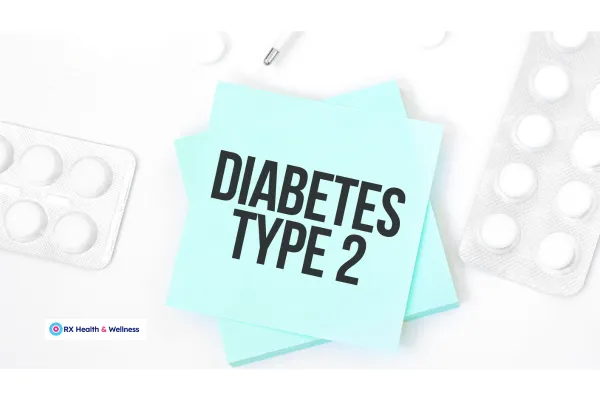
Are You at Risk for Diabetes?
Are You at Risk for Diabetes?
As a healthcare professional, I never imagined I’d find myself on the other side of the exam room—living with the very conditions I once helped my patients manage.
When I turned forty, my health began to change. My eyesight worsened. I was diagnosed with pre-diabetes and high blood pressure. Despite knowing the risks, I was shocked. After all, I counseled others on diabetes prevention for years—so how did I end up here?
Understanding the Risks for Type 2 Diabetes
Type 2 diabetes doesn’t happen overnight—it’s the result of genetic, environmental, and lifestyle factors that build over time. Some risks we can’t change, but others we absolutely can.
Unchangeable Risks
Age: Risk rises significantly after age 40.(CDC, 2024)
Family History: Having a parent or sibling with diabetes increases risk.
Ethnicity: Higher risk among Latino, Black, Asian American, Pacific Islander, and American Indian populations.(ADA, 2024)
Modifiable Risks
Overweight or Obesity: Extra abdominal fat drives insulin resistance, the hallmark of type 2 diabetes. Even losing 5–10% of body weight can reduce risk.(Knowler et al., NEJM, 2002)
Physical Inactivity: Regular activity improves insulin sensitivity and glucose uptake.
High Blood Pressure or Cholesterol: Both conditions increase diabetes risk due to shared metabolic pathways.
Gestational Diabetes: Women who develop diabetes during pregnancy have up to a 50% higher lifetime risk of type 2 diabetes.(Kim et al., Diabetes Care, 2010)
Pre-diabetes: Elevated fasting glucose or A1C between 5.7–6.4% Is a red flag for metabolic dysfunction.
Take a diabetes risk test: Click HERE
My Turning Point
In my case, I was older, Latina, overweight, inactive, and juggling work, family, and caregiving. Like many women, I put everyone else first.
When my doctor told me to “lose weight, eat better, and exercise,” I nodded—I already knew that. But knowing and doing are not the same thing. I was exhausted, overwhelmed, and guilty for not keeping up.
Still, the fear of not being there for my daughters was the motivation I needed. I started making tiny, sustainable changes: walking daily, meal-prepping, and adding more colorful, whole foods to my plate.
How I Reclaimed My Health
It wasn’t easy. I stumbled many times. But slowly, my small habits compounded:
I lost over 20 pounds
My A1C dropped below 5.7
I eventually came off blood pressure medication
My energy and focus returned
For more than a decade, I kept my prediabetes in check—until the pandemic. Between stress, grief, and menopause, my insulin resistance worsened, and I crossed into diabetes.
But this time, I took a functional medicine approach—addressing the root causes:
Healing my gut microbiome
Reducing toxic exposures
Improving sleep and stress resilience
Rebalancing hormones during perimenopause
Rebuilding community and connection
Through this holistic approach, I achieved diabetes remission—what most doctors call “reversal.”
What You Can Do
You can lower your risk or even put diabetes into remission by focusing on the fundamentals of metabolic health:
Eat for Blood Sugar Balance– Choose fiber-rich vegetables, lean protein, and healthy fats. Limit processed carbs and sugary foods.
Move Daily– Even brisk walking after meals improves insulin sensitivity.
Manage Stress– Chronic stress raises cortisol and blood sugar. Practice deep breathing, journaling, or yoga.
Prioritize Sleep– Poor sleep disrupts insulin regulation. Aim for 7–8 hours.
Know Your Numbers– Check your A1C, fasting glucose, and waist circumference regularly.
“You can’t change your genetics, but you can change how your genes express themselves through daily choices.” —Dr. Mark Hyman, The Blood Sugar Solution
Key Takeaway
Awareness isn’t enough—action is what changes outcomes. Whether you’re at risk for diabetes or already living with it, functional lifestyle strategies can make all the difference. You have the power to influence your health trajectory starting today.
References
Centers for Disease Control and Prevention.National Diabetes Statistics Report, 2024.
American Diabetes Association.Standards of Care in Diabetes—2024.Diabetes Care, 47(Suppl. 1): S1–S250.
Knowler WC, et al.Reduction in the incidence of type 2 diabetes with lifestyle intervention or metformin.N Engl J Med.2002;346(6):393–403.
Kim C, et al.Gestational diabetes mellitus and risk of type 2 diabetes: A systematic review.Diabetes Care.2010;33(5): 1199–1204.
Hyman M.The Blood Sugar Solution.Little, Brown; 2012.
